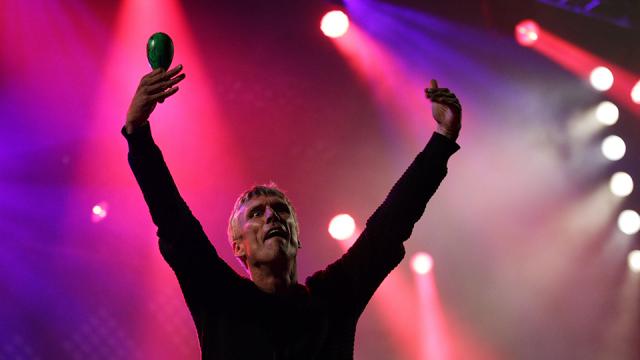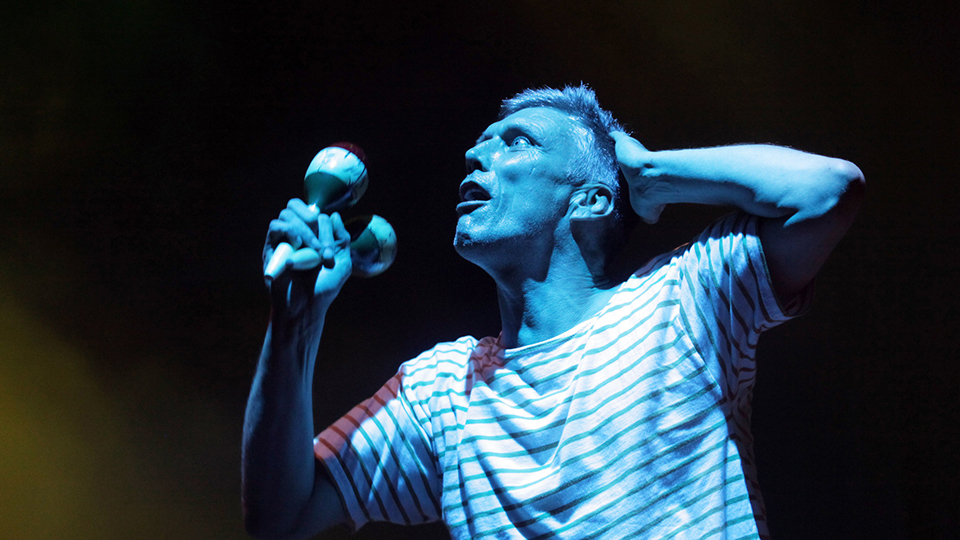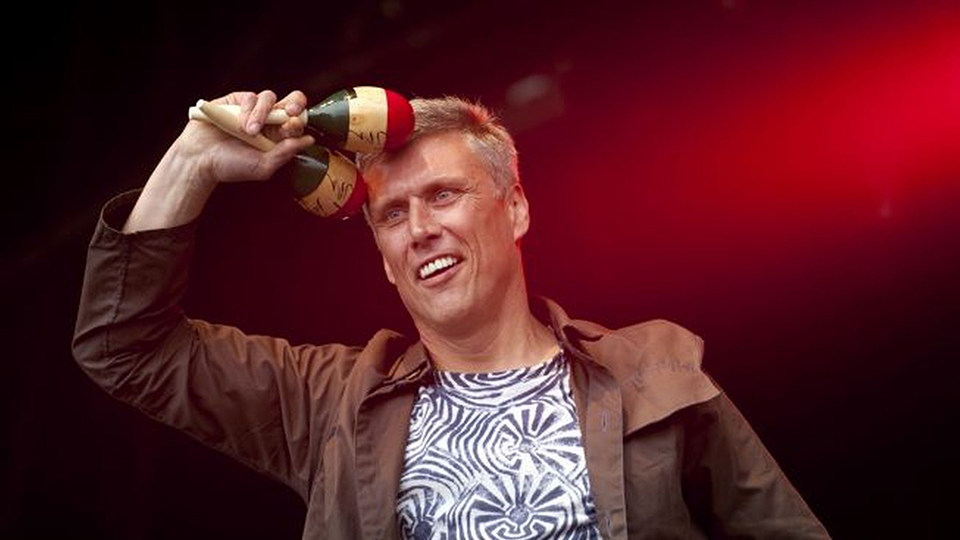
Bez? Who? The Happy Mondays? you ask in bewilderment. Here in the UK, though, Bez and the Happy Mondays are well-known names. A famous band of the 1980s and 90s that captured the youth spirit of the Manchester club scene, laden with ecstasy and booze, the Happy Mondays have secured a legendary position in the history of British music.
So perhaps it's not surprising that when Bez – the gangly dancer of the band who was known for little more than shaking his maracas and looking menacingly high – recently announced his intention to become a Member of Parliament, a media furor followed.
The Happy Mondays dancer says he's going to “fight the revolution from within” by running as an independent MP for his hometown of Eccles and Salford (Manchester suburbs) in the 2015 general election. Bez's primary concerns, he says, are fracking and genetically modified foods. What's refreshing about this story is it provides an opportunity for British voters to elect someone who is speaking about green issues from a more radical perspective.
Not only this, but the formidable face of Bez being stamped across the press and TV screens – fervently discussing the demise of bees, the evils of fracking and the controversy of GM food – raises awareness about the issues in a way that most media do not.
As Bez-MP fever snowballs on the Internet, spoof election campaigns of the dancer and Happy Mondays band members sitting in the Houses of Parliament answering the Prime Minister's questions are flooding the likes of Twitter. But amidst the Bez media frenzy, two questions remain unanswered: What are the chances of Bez actually getting “within” the establishment? And would Bez actually benefit Britain by being in parliament?
Bez – real name Mark Berry – is attempting to replace Labour MP Hazel Blears. Calling for "new world order," he promises to campaign for the redistribution of wealth, banking reform and an end to war. The keen beekeeper also said promoting sustainable living would be high on his agenda.
While the dancer's political ambitions might seem unrealistically ambitious, his presence – and rivalry – amongst the private-school educated and affluent class that run Britain is refreshing. What's more, whilst Bez's MP campaign may be a source of ridicule in much of the mainstream press and current affairs programs, it is already bringing added attention to contentious issues such as fracking in Britain.
Highlighting environmental campaigns
For example, Bez's political plans were welcomed by campaigners at a recent anti-fracking protest near Manchester, where some 60 activists living at an encampment have opposed efforts by drilling companies to recover gas and oil from shale rock. Sharing a beer and a joke with Bez, the camp members said they appreciated his support.
“He really raised the spirits of the camp," one campaigner told reporters.
But Bez's presence at the anti-fracking protest did more than raise campaigners' spirits – it raised the profile of the protest in the news, as well. Despite people living at the camp for over a year, media coverage there has been minimal. I myself had never heard of the Barton Moss anti-fracking protest until Bez showed up there, followed by a string of reporters keen to join the Bez-MP hype.
Now, as a result, the Barton Moss anti-fracking protest is widely known. Bez's foray into politics and his drive to promote sustainable living have already succeeded in raising awareness about this environmental issue – and, his supporters hope, there will be many more issues to follow.
The natural question that follows is: What are the chances of Bez actually getting elected? It isn't as though the Happy Mondays dancer is the first entertainment celebrity to dapple in politics. In 2012, following overwhelming pressure from supporters, Senegal's musical star Youssou N'Dour announced plans to run against octogenarian incumbent Abdoulaye Wade in the country's presidential election.
“I've traveled the world and been seen by people all over the world and I think I have the ability to govern Senegal. I am the alternative,” said the singer on his own TV station. The musician's move into politics was successful, while not becoming president, he was appointed tourism and culture minister in the cabinet of the new President Macky Sall.
As the BBC wrote at the time, coming from a humble background outside of the political system, N'Dour was able to “escape the frustrations that many voters associated with Senegal's political elite.”
The same principle could be applied to Bez. The singer's working class roots, his associations with binge drinking, drug-taking and 24 hour partying, certainly provides an energizing alternative to the "stiff upper lip" of the privately-educated politicians that people of Britain have long endured. Like Youssou N'Dour, Bez is "the alternative "– and it's that outsider status which could help the dancer's vote ballots come streaming in during next year's elections.
Bez's proposals like transforming the current banking system, redistributing wealth, giving away free food and ending “all war” are bound to be popular with many British citizens. But where he would really succeed in the British parliament is by making politicians, and politics, seem more down-to-earth and credible.
3 WAYS TO SHOW YOUR SUPPORT
- Log in to post comments













